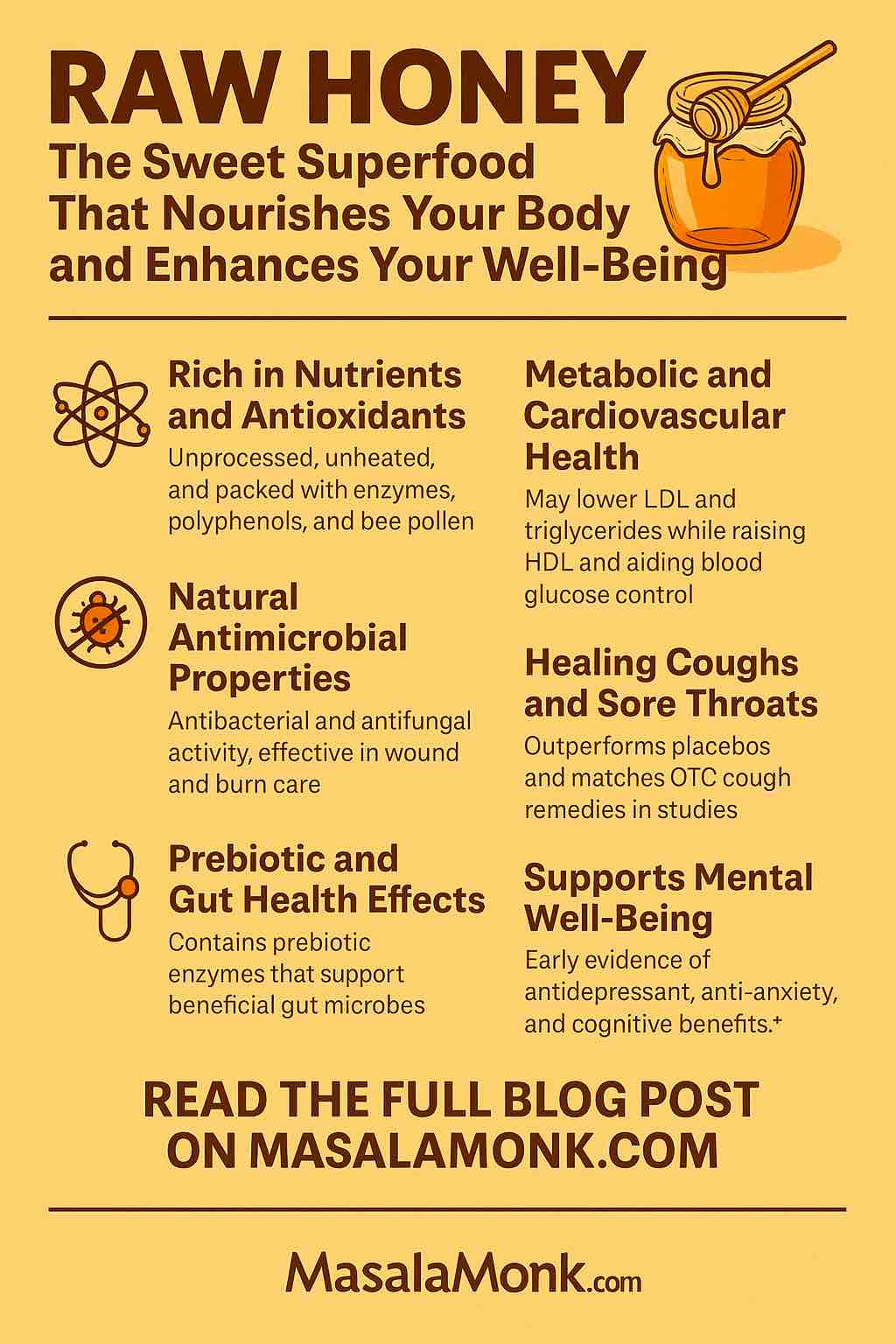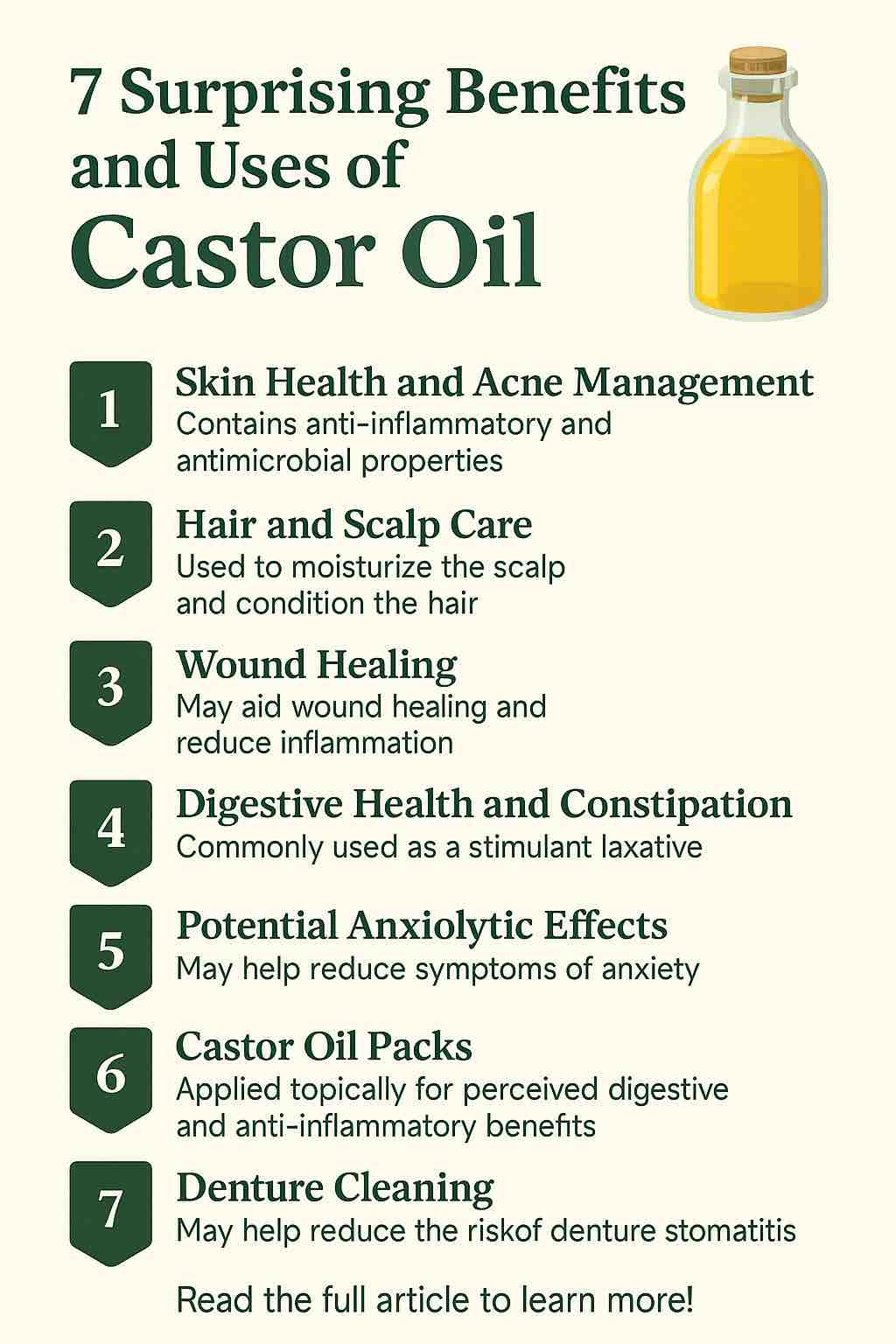
In a world where superfoods are all the rage, raw honey stands out as a golden elixir of nature—sweet, nutrient-dense, and brimming with health benefits. Whether drizzled over yogurt, stirred into tea, or applied to wounds, this ancient remedy has earned modern scientific validation. But not all honey is created equal. To reap its full benefits, you must understand what makes raw honey unique, how to use it effectively, and how to ensure you’re getting the real deal.
What is Raw Honey?
Raw honey is honey that has not been heated or pasteurized. It retains all of its natural enzymes, antioxidants, vitamins, and phytonutrients—compounds that are often lost during commercial processing. Unlike the clear, syrupy versions you find in most supermarkets, raw honey is typically cloudy due to pollen, propolis, and bee enzymes suspended in the mixture.
Nutritional Profile and Unique Compounds
Raw honey is far more than a natural sweetener. It contains:
- Antioxidants: Flavonoids and phenolic acids that help combat oxidative stress.
- Enzymes: Like glucose oxidase, which contributes to honey’s antibacterial properties.
- Amino Acids & Vitamins: Including small amounts of B vitamins and vitamin C.
- Prebiotics: Compounds that support beneficial gut bacteria.
- Bee Pollen & Propolis: Known for their anti-inflammatory and antimicrobial effects.
This synergistic composition makes raw honey a potent functional food.
Proven Health Benefits of Raw Honey
1. Antioxidant and Anti-Inflammatory Powerhouse
Multiple studies have confirmed that raw honey lowers markers of inflammation like CRP and IL-6, contributing to reduced risks of chronic diseases like heart disease and diabetes.
2. Supports Digestive Health
Raw honey has been shown to soothe the gastrointestinal tract, aid in the treatment of ulcers, and promote the growth of good gut bacteria thanks to its prebiotic content.
3. Cough and Sore Throat Remedy
Backed by both tradition and science, raw honey often performs as well or better than over-the-counter cough suppressants. A spoonful at bedtime can reduce nighttime coughing and improve sleep quality.
4. Wound Healing and Antimicrobial Effects
Raw honey’s low pH and hydrogen peroxide content make it an effective topical antimicrobial. It has been used successfully to treat burns, diabetic ulcers, and surgical wounds.
5. Blood Sugar and Lipid Regulation
Despite its sweetness, studies suggest raw honey may lower fasting blood glucose and improve cholesterol profiles when used in moderation compared to table sugar.
6. Potential Mental Health and Neuroprotective Effects
Preclinical research hints that raw honey may reduce anxiety and improve memory, although more human trials are needed.
How to Choose Genuine Raw Honey
The term “raw” isn’t strictly regulated in many regions, so follow these guidelines:
- Look for Cloudiness: Raw honey is often opaque due to natural particles.
- Check the Source: Single-origin and local beekeeper products are more reliable.
- Verify with Lab Reports: Some premium brands offer third-party testing for purity and authenticity.
- Avoid Ultra-Clear Honey: If it looks like syrup, it’s probably been heated.
Advanced technologies like spectroscopy, AI, and thermal imaging are now being used to authenticate raw honey, especially at the industrial level.
Practical Ways to Use Raw Honey Daily
| Goal | How to Use |
|---|---|
| Immunity Boost | 1 tsp daily in warm water with lemon |
| Gut Health | Add to yogurt or kefir as a prebiotic booster |
| Wound Care | Apply medical-grade honey topically under sterile dressing |
| Cough Relief | 1 tsp at bedtime, optionally with warm tea |
| Workout Fuel | 1 tbsp before exercise for a natural energy lift |
Note: Always avoid giving honey to infants under one year due to botulism risk.
The Bottom Line
Raw honey isn’t just another health trend; it’s a time-honored superfood that bridges the gap between nutrition and medicine. Its natural compounds offer powerful support for the immune system, digestion, skin, and even mood. But authenticity matters. Choose your honey wisely, use it purposefully, and enjoy the sweet rewards of one of nature’s most versatile gifts.
Author’s Tip: For best results, pair raw honey with a whole-food lifestyle. It works best not in isolation, but as part of a broader commitment to health and well-being.
Choosing & Using High‑Quality Raw Honey
| Criteria | Why It Matters |
|---|---|
| Single-origin/local | More likely genuine—not a blend diluted with cheaper honey |
| Certified raw | Minimally processed, retains enzymes and volatile compounds |
| Lab-verified purity | FT-IR/ML or gas-sensor validated—reduces adulteration risk |
| Medical-grade seal | For clinical use (dressings, wound care) |










